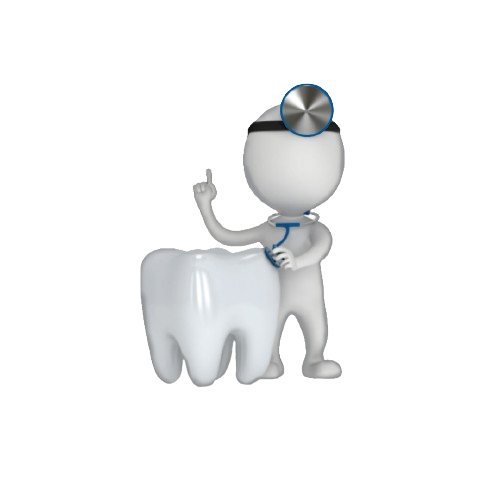Artificial tooth roots are made of biocompatible material (usually titanium) surgically placed into the jawbone beneath the gums. A dental implant serves as a stable base for replacement teeth and comprises three components:
- The implant serves as a replacement for the natural tooth root.
- An abutment (a connector piece that supports and holds the prosthetic tooth or crown).
- The prosthetic tooth or crown (the visible part that resembles a natural tooth).
There are several types of dental implants based on the number of missing teeth and the condition of the jawbone:
Single tooth implants
- Replace an individual missing tooth.
- Replace several adjacent missing teeth without affecting neighbouring teeth.
Implant-supported dentures
- Replace an entire set of missing teeth in an arch, offering stability and retention without requiring adhesives.
Procedure
- Consultation: Initial assessment and treatment planning with a dental professional.
- Implant Placement: Surgical placement of the implant into the jawbone, followed by a healing period (osseointegration) during which the implant fuses with the bone.
- Abutment Placement: Once osseointegration is complete, the abutment is attached to the implant.
- Crown Placement: A custom-made crown or prosthetic tooth is attached to the abutment, completing the restoration.
Benefits
- Natural Appearance: Implants look like natural teeth, restoring aesthetics and confidence.
- Durability: With adequate maintenance, implants can endure for a lifetime, establishing them as a durable, enduring solution
- Improved Function: They work like natural teeth, allowing for normal chewing, speaking, and biting.
- Preserve Adjacent Teeth: Unlike bridges, implants do not require adjacent teeth to be modified or prepared.
- Bone Health: Implants stimulate jawbone growth and prevent bone loss from missing teeth.
Maintenance
Regular brushing, flossing, and dental check-ups are essential for maintaining implants and longevity. Avoiding habits like teeth grinding and using teeth as tools can help prevent damage to implants and surrounding teeth.
Dental implants provide a durable and natural-looking solution for replacing missing teeth. They restore function and appearance while promoting long-term oral health by preserving jawbone integrity. Despite initial costs and required maintenance, implants offer significant advantages over traditional options, making them a preferred choice for many seeking a permanent tooth replacement solution.




